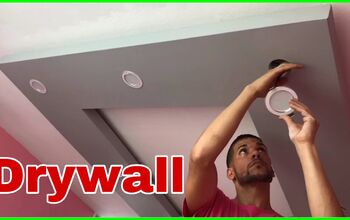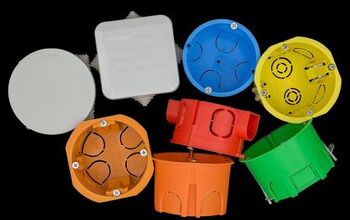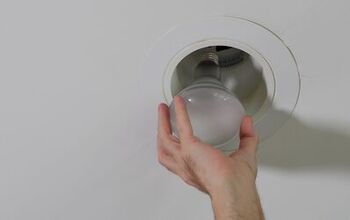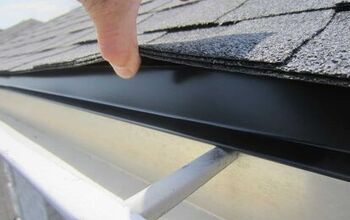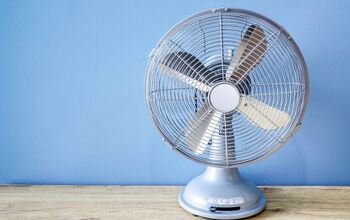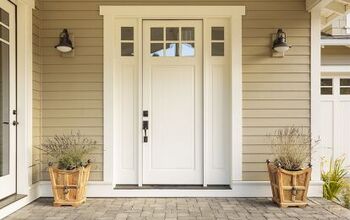How To Reduce Noise When You Live On A Busy Street

Finding a house that suits all your expectations is quite difficult. That sometimes means you must settle for a great house where the main downside is that it’s near a busy road. Understandably, you may wonder how to reduce noise when you live on a busy street.
You can reduce noise from nearby streets if you block your door gaps with weatherstripping. Install acoustic panels and hang soundproof blankets or tapestries on the walls to absorb outside noise. It’s worth replacing your windows with soundproof glass and sealing gaps and cracks in your home to reduce noise.
You can also help block outside noise if you plant dense trees and shrubs near your house. Follow along as we explore how to reduce noise when you live on a busy street.
How To Block Noise On A Busy Road
1. Block Your Door Gaps
The gaps under your doors not only let in bugs, but they also let noise in. Noise pollution from busy streets can easily work its way into your house if you don’t block door gaps. The best way to do this is to install traditional weatherstripping in the door gap.
Some weatherstripping features an adhesive, which makes it easy to attach to your door. However, it’s best to choose durable weatherstripping that you must screw into the base of your door. That way, you don’t have to worry about damaging the paint on your door or the weatherstripping coming loose and falling off.
Granted, this works best when done in conjunction with other noise-blocking solutions. Weatherstripping can also help you save money on heating and cooling, as you don’t have to worry as much about temperature fluctuations.
2. Cover The Floor
The floors in your home make outside sounds reverberate, especially when you live on a busy street. That’s partly why you may feel the room shake during high-traffic times when lots of cars drive by. One great way to reduce noise is to cover the floor with rugs, runners, and carpets.
Doing so can reduce noise and vibrations that make it hard to enjoy a quiet evening. They also help reduce noise from foot traffic when your family and pets walk around the house. However, you must keep up with cleaning your rugs and carpets at least twice per month to reduce dust.
3. Replace Your Windows
Old, thin windows don’t do much to block outside noises from seeping into your house. Today, you can find soundproof windows that work to reduce noise from even high-traffic roads. Keep in mind that soundproof windows are expensive and cost between $300 and $1,500 or sometimes more.
However, that often includes the cost of installation depending on who you hire for the job. It’s much cheaper to install soundproof windows if you forego professional help. The overall cost depends on the cost of materials, labor, and how many windows you must replace.
Triple-pane windows are especially expensive and can even cost up to $3,500 per window. However, double-pane windows cost $300 to $850 to install and offer great noise reduction as well. Installation costs include $100 to $800 for labor, depending on how many windows you’re replacing.
4. Seal Cracks
Unfortunately, everything from your doors and walls to windows and home foundation is prone to cracks. These cracks can let bugs, air, water, and noise into your house when you live on a busy street. No matter what you do, you can’t reduce all the noise until you seal cracks.
Sealing minor cracks costs roughly $250 to $1,500, whereas sealing major cracks costs up to $5,000. You can save a small fortune if you forego professional help and seal the cracks with caulk. Silicone caulk is best for sealing cracks in exterior walls and windows.
That’s because it is water-resistant and more likely to withstand prolonged exposure to the elements. Conversely, latex caulk does best inside when you seal interior doors, walls, and drywall. Sealing gaps without professional help can save hundreds or thousands of dollars.
5. Hang Soundproof Blankets
Soundproof blankets may not look beautiful, but they can significantly help reduce noise when you live on a busy street. They feature several layers of thick materials like vinyl, fiberglass, and cotton to absorb sound. Much of the noise pollution you hear at home comes through the walls.
You can fix this problem if you hang some soundproof blankets on the wall. However, some people hate the look of soundproof blankets and instead hang tapestries. This is a great option as well, but tapestries aren’t quite as effective for noise reduction.
In that case, you can double up on tapestries to get better results. Look for thick tapestries, as they will absorb and reduce noise more easily.
6. Install Acoustic Panels
Acoustic panels aren’t just for recording studios and can effectively reduce noise in homes on busy streets. They are made of wool, fiberglass, foam, and other absorbent materials. You can easily attach acoustic panels to the wall to absorb outside noise.
Installing acoustic panels costs between $2 and $18 per square foot. However, most homeowners don’t need to cover their walls with acoustic panels. Instead, focus on rooms that get the most noise pollution from nearby roads.
In some cases, you can find packs that contain dozens of acoustic panels for under $40. The cost of soundproofing a room depends on the materials you choose and the size of the room.
7. Fill Your Yard With Plants
Have you ever been in the woods near a road and noticed it’s quieter than you expected? That’s because the surrounding plants and trees have soundproofing properties. You can apply this principle to your yard and reduce noise from nearby traffic and neighbors.
Plant some trees and dense bushes near your home to block outside sounds. Keep in mind that you should avoid planting trees within 15 feet of your house. Any closer and you risk having trees fall on your home during a heavy storm.
It’s also important to protect your foundation from tree roots. Otherwise, you will have a much bigger and more expensive problem to deal with if your foundation cracks.
Do Busy Roads Reduce Home Value?
Unfortunately, busy roads can reduce home value, as many potential homeowners find them undesirable. A busy road can lead to lower sales prices because of concerns over noise and traffic incidents. Such houses sometimes sit on the market for a while, and buyers may ask homeowners to reduce the asking price.
Summing It Up
The best way to reduce noise when you live on a busy street is to place weatherstripping beneath your exterior door cracks. It’s also important to seal indoor cracks with latex caulk and outdoor cracks with silicone caulk. Otherwise, it’s a great idea to hang soundproof blankets and acoustic panels on the walls to block noise pollution.
Related Guides:

Nick Durante is a professional writer with a primary focus on home improvement. When he is not writing about home improvement or taking on projects around the house, he likes to read and create art. He is always looking towards the newest trends in home improvement.
More by Nick Durante











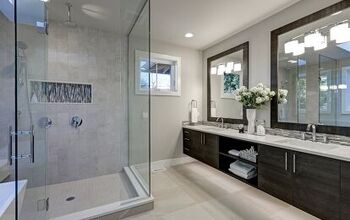
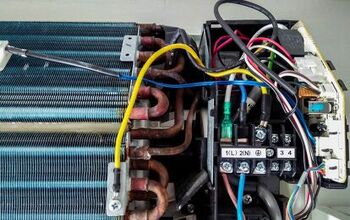
![10 Best Scroll Saws for 2022 [Ultimate Reviews & Buyer's Guide]](https://cdn-fastly.upgradedhome.com/media/2023/07/31/9070684/10-best-scroll-saws-for-2022-ultimate-reviews-buyer-s-guide.jpg?size=350x220)




